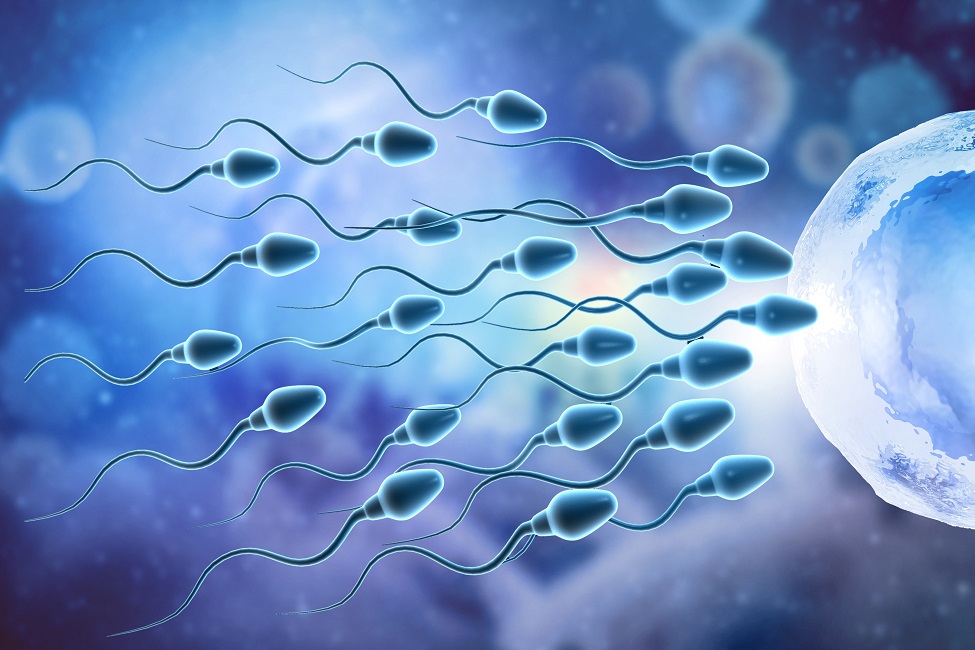Oligospermia—commonly known as low sperm count—is often unnoticed until a couple faces difficulties in conceiving. It is defined medically as having fewer than 15 million sperm per millilitre of semen, which is below the average count. In more severe cases, the sperm count can fall below 5 million per millilitre.
Do you think that you or your partner may be suffering from this condition and are wondering about the causes of low sperm count? Are you seeking treatment for low sperm count but are not sure where to start?
In this blog, we discuss everything you need to know to understand the problem and find medical help from a fertility specialist.
How common is low sperm count?
The exact number of people with oligospermia is not well-established, as it is often diagnosed only during fertility assessments. Even in India, only a few studies have been done on this subject.
That said, low sperm count is a major factor in infertility, affecting approximately 50% of infertility cases in people assigned male at birth. This percentage includes cases where male infertility is the sole issue and those involving fertility problems in both partners. Some studies also show a reduction in semen quality among Indian men over time. The study was done over a period of 37 years, from 1979–2016.
If you believe that you or your partner might be experiencing oligospermia, rest assured that you’re not alone, and there’s absolutely no stigma in reaching out and seeking medical assistance.
This condition is quite responsive to treatment. The crucial step is to find a skilled fertility specialist who is experienced in the management and treatment of low sperm count.
What are the symptoms of low sperm count?
The primary symptom of oligospermia is the inability to conceive after a year of unprotected intercourse. Often, there are no additional clear signs or symptoms.
However, in certain cases, men may experience underlying issues such as genetic chromosomal abnormalities, hormonal imbalances, enlarged veins in the testes, or conditions obstructing sperm passage, which can manifest specific symptoms. When a low sperm count is related to such health issues, symptoms may include:
- Sexual dysfunction, which could manifest as a reduced desire for sex or difficulties in getting or maintaining an erection (a condition known as erectile dysfunction)
- Physical discomfort, swelling, or the appearance of a lump in the testicular region
- A noticeable decrease in body or facial hair, which could be a sign of a problem with chromosomes or hormones
Oligospermia should not be confused with azoospermia. Oligospermia is characterised by a lower-than-normal sperm count, whereas azoospermia is the complete absence of sperm in the semen. This distinction is crucial in understanding the cause of the issue and the best course of treatment.
What are the causes of low sperm count
The causes of low sperm count are varied and include genetic diseases, infections, hormonal issues, and physical blockages. Environmental factors like heat and toxins, as well as certain medications, also play a role in causing oligospermia. Let’s talk about each one:
-
Genetic and infectious factors –
Genetic disorders such as Klinefelter syndrome and cystic fibrosis can lead to low sperm count. Infections like sexually transmitted diseases and urinary tract infections, along with hormonal disorders such as hypogonadism, also contribute to oligospermia. Physical obstructions in the reproductive system are another factor in the causes of low sperm count.
-
Environmental toxins and heat –
Environmental toxins—including heavy metals like arsenic, cadmium, lead, and mercury—can adversely affect sperm count. Additionally, sperm production is optimal at a slightly lower temperature than the body’s average. Conditions like undescended testicles or varicoceles (which increase testicular temperature) can negatively impact sperm count as well.
-
Medications and drugs –
Various medications, both prescription and over-the-counter, can reduce sperm count. These include testosterone, methadone, and others. It’s important to consult healthcare providers about potential medication effects on sperm count and not to discontinue prescribed medications without professional guidance.
How is low sperm count diagnosed?
There are generally three steps involved in diagnosing oligospermia:
-
Physical examination and medical history –
The doctor may perform a thorough check of the genitals and ask questions about any hereditary conditions, chronic health problems, past illnesses, injuries, or surgeries that could impact fertility. Discussions about your sexual practices and developmental history are also part of this examination.
-
Semen analysis –
Diagnosing a low sperm count is primarily done through a semen analysis test. This process involves observing the semen under a microscope to count the sperm visible in grid squares. Sometimes, computers aid in counting the sperm.
Semen can be collected in different ways. The usual method involves masturbation and ejaculating into a container provided by the doctor’s office. Alternatively, due to certain beliefs, semen may be collected during intercourse using a special condom.
Sperm production is a continuous process, taking approximately 42 to 76 days to mature. Therefore, a semen analysis reflects your condition over the past three months. Any recent positive lifestyle changes may take a few months to show effects in semen analysis.
One common issue in low sperm count diagnosis is incorrect collection of the semen sample. Since sperm counts can vary, doctors often require multiple semen samples over a period to ensure consistent results.
For accurate sample collection, doctors will advise:
- Ensuring complete ejaculation into the collection cup or condom.
- Refraining from ejaculation for two to seven days before sample collection.
- Providing a second sample at least two weeks after the first.
- Avoiding lubricants as they can impact sperm motility.
-
Analysis of results
A normal sperm density ranges from 15 million to over 200 million sperm per millilitre of semen. Counts below 15 million per millilitre, or less than 39 million per ejaculate, are considered low. The lower the sperm count, the lower the chances of conception.
It’s important to remember that sperm count is just one aspect of fertility. Some men with low counts father children, while others with normal counts have difficulties. Factors like sperm motility—the ability of sperm to move efficiently and fertilise an egg—are also important.
Additional tests
Depending on the initial results, the fertility doctor might recommend further tests, such as:
-
Scrotal ultrasound –
This test uses sound waves to examine the testicles and surrounding areas.
-
Hormone testing –
A blood test checks hormone levels that affect sexual development and sperm production.
-
Post-ejaculation urinalysis –
This test looks for sperm in the urine to identify retrograde ejaculation.
-
Genetic tests –
When sperm concentration is very low, genetic issues might be the cause. A blood test can reveal changes in the Y chromosome or other genetic syndromes.
-
Testicular biopsy –
The doctor removes a small sample from the testicle to check sperm production. This helps identify blockages or other sperm transport issues.
-
Anti-sperm antibody tests –
- These tests, which are less common, check for immune cells that attack sperm.
-
Specialised sperm function tests –
These tests assess how well sperm survive after ejaculation, their ability to penetrate an egg, and if they can attach to the egg. They are rarely performed and usually don’t change treatment plans.
-
Transrectal ultrasound –
A small wand is inserted into the rectum to check the prostate and look for blockages in the tubes carrying semen.
Note that even if a low sperm count seems to be the issue, it’s advisable for your partner to also undergo evaluation. This helps in ruling out other contributing factors and determining the best mode of fertility treatment for you as a couple.
What are the approaches to the treatment of low sperm count?
The right treatment depends on its root cause. It may involve hormonal therapy, surgery for physical blockages, lifestyle changes, or a combination of these. Addressing environmental factors and re-evaluating medication use is also important in the treatment of low sperm count.
Couples dealing with this condition should seek guidance from fertility specialists for comprehensive care and support. These professionals can assist in navigating the complexities of fertility treatment, offering hope and support on the journey to parenthood.
Treatment of low sperm count in India
At Advance Fertility, we understand that dealing with infertility can be a challenging and emotional journey. Our team is not only equipped with the latest in fertility treatments but also provides a supportive and understanding environment. We are committed to guiding you through every step of your journey by offering personalised care and support.
We have the expertise and the technology to address male infertility, particularly focusing on treating the causes of low sperm count.
Advance Fertility’s approach to treatment of low sperm count is rooted in a comprehensive diagnostic process. This begins with a detailed semen analysis, hormonal testing, and imaging studies. These tests are critical in understanding the underlying causes of low sperm count, enabling our specialists to develop a tailored treatment plan.
We offer a variety of treatment modalities, each aimed at addressing specific aspects of male infertility:
-
Hormonal medications
-
Aromatase Inhibitors –
Particularly useful when high oestrogen levels are a factor, these medications help restore hormonal balance.
-
Clomiphene Citrate –
This medication boosts the production of key hormones like FSH and LH, which in turn increases testosterone levels and sperm production.
-
Follicle-Stimulating Hormone (FSH) –
Administered via injection, FSH encourages the testes to produce more testosterone and sperm.
-
Gonadotropin Therapy –
- This is used when there’s inadequate production of gonadotropins from the pituitary gland.
-
Human Chorionic Gonadotropin (HCG) –
Similar to LH, HCG is given through injection to stimulate testosterone and sperm production.
-
Antibiotics
In cases where a bacterial infection is the cause of the problem, appropriate antibiotics are prescribed to tackle the infection, thereby improving fertility.
-
Vitamins and antioxidants
- Vitamin E aids in protecting sperm cell membranes. It also enhances the overall sperm health by preventing oxidative stress, which can damage the DNA in sperm cells.
- Selenium boosts sperm motility and protects against oxidative damage. Selenium’s role in the synthesis of testosterone and the formation of sperm further underscores its importance in male fertility.
- Coenzyme Q10 (CoQ10) improves sperm count and quality. CoQ10 is known for its role in energy production within cells, which is crucial for the optimal functioning of sperm.
- Lycopene enhances sperm quality and motility. Its antioxidant properties help in reducing the damage caused by free radicals to sperm cells.
- Zinc is essential for sperm production and maintaining testosterone levels. It plays a pivotal role in nucleic acid metabolism and the stabilisation of sperm chromatin.
- Carnitine is crucial in energy metabolism and supporting sperm health. It is particularly important for the transport of fatty acids into the mitochondria of sperm cells, providing the energy required for motility.
-
Dietary changes and stress management
- Incorporating a diet rich in antioxidants and essential vitamins is key. Such a diet ensures the provision of necessary nutrients that are fundamental in improving sperm health.
- Stress reduction is vital as chronic stress can impair hormone levels and subsequently affect sperm production and quality. Techniques like meditation and yoga can improve sperm motility.
-
Varicocele repair
Surgical intervention can be considered if varicoceles are affecting sperm health. Repairing these enlarged veins can improve testicular temperature, which is essential for optimal sperm production and function.
-
Intrauterine Insemination (IUI)
This treatment involves processing and inserting concentrated sperm directly into the uterus. It significantly increases the chances of fertilisation by bypassing potential barriers in the female reproductive tract.
-
In Vitro Fertilisation (IVF)
For severe cases, IVF may be recommended where fertilisation occurs outside the body. This method allows for the selection of the healthiest sperm, enhancing the likelihood of successful fertilisation.
-
Intracytoplasmic Sperm Injection (ICSI)
Used in conjunction with IVF, this involves injecting a healthy sperm directly into an egg. ICSI is particularly beneficial in cases where sperm motility is extremely low, or the sperm’s ability to penetrate the egg is compromised.
Take the first step with Advance Fertility.
If you’re facing challenges with male infertility, know that you’re not alone. Advance Fertility is here to provide you with the expertise, care, and support you need. Contact us to begin your journey towards parenthood. We are dedicated to helping you achieve your dream of starting or growing your family.


